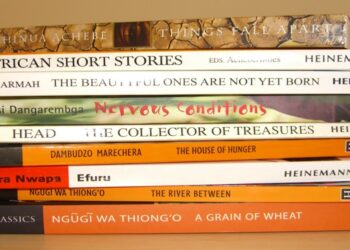In robots and artificial intelligence, common human competencies, such as creativity, are becoming extremely important. Creative writing is the art of writing literary works such as poems, novels, plays, memoirs, or biographies. When we get creative, we do more than just present information. We use our imagination to express our emotions, create original things, or use existing ideas in new ways. Now that encompasses a lot more than just poetry and novels.
Here are the reasons why you should get interested in creative writing.
1. It’s something that works for everyone
Creative writing is incredibly diverse in its genres, scope, and levels of complexity. If you want to write something highly structured, you might try scripts. If you prefer complete freedom of thought, your choice would be freelance writing or journaling. You can keep your creativity private or share it with the world. It doesn’t matter if you only have a few minutes or an entire day. We are all capable of creativity. We need to find something that fits our time, interests, and ambitions. Creative writing is open to anyone who can write. Here are some things you can try that go beyond novels and poetry:
- Journaling or blogging
- Haiku
- Nonfiction
- Flash fiction
- Speechwriting
- Anecdotes
- Character sketches
- Song lyrics
- Parodies
- Jokes
- Musings
- Essays
2. It helps to develop other styles
Creative writing broadens the scope in writing functional texts, such as work reports, academic essays, resumes, informational articles, or advertising proposals. If you need to write a job application, try a freewriting session about your previous experience. Why are you such a good fit for the position? Set a timer for 10-15 minutes and write down everything that comes to mind. Don’t try to structure it like a cover letter, and don’t worry about using formal language. Just splash out a stream of thoughts on paper.
It’s an excellent way to brainstorm, take it easy, and have fun. You can even experiment with writing dialogue. Imagine you’re in an interview room, and you’re talking to an HR manager. When you’re done, reread what you’ve written. Highlight any parts you can use when writing the final version of your resume. You can use this same free rating technique to create any other worktext. You will be surprised at how much it brings dry clerical lines to life.
3. It allows you to share your experiences
Not every writer started out wanting to be a writer. Many famous authors moved on to creative writing when they discovered it was the best way to tell their stories. Others have embraced it to promote their business or spread their ideas and knowledge.
4. It’s relaxing
One of the great benefits of creative writing is that it helps combat the stress of everyday life. Some people find it more effective (or at least not worse). It’s a workable way of being in the present moment. The mind is much less likely to wonder if it is absorbed in the thoughts and problems of the character rather than its own. Creating stories gives you a chance to escape into another world. After a creative writing session, you’ll feel much calmer and happier.
If you don’t like writing fiction, you can achieve the same effect by sitting in a public place and describing what’s happening around you. Let’s say you’re lying on the beach. The family next to you is having a barbecue. What do you notice? Try to focus on the little details – sights, smells, sounds, tastes, textures. It’s essentially the same popular mindfulness, only in written form. Here’s what it might look like:
- Dad flips the sausages, revealing a tattoo of a lizard running down his left arm;
- the smell of charred onions wafts in;
- the soft rustle of a shovel going into the sand as Mom helps the kids with their sandcastle;
- after bathing, I can taste the salt on my tongue.
And there can be a great many such variations.
5. It’s a good tool for personal growth
The journal is one of the oldest and most common forms of creative writing. It gives us enough freedom and privacy to explore our darkest fears, greatest desires, and most profound shame. Psychologists and psychotherapists use diaries frequently and in various forms in their work. It helps patients process trauma and copes with difficult moments. Creative writing can be a valuable tool for personal development in other areas of life.
For example, it is an excellent way to learn your strengths and weaknesses. After every critical event, write down your pros and cons. It could be a presentation, a job interview, or passing an exam. What did you do well, what do you still need to work on? And be sure to describe the conclusions and specific steps you will take next. Reflection in writing forces your brain to lay things out, which is a far cry from just thinking about it.
6. It can improve your language skills
Because creative writing is so different from other types of writing, it increases our understanding of language and forces us to use it in new ways. It applies to learning a foreign language as well. Whether real or imaginary, writing stories is a great way to practice a new language. You’re actively using your vocabulary, expanding it, and practicing to form sentences. When you write essays or business letters, you usually work in a more rigid structure. Often you use memorized clichés.
On the other hand, creative writing involves expressing your real feelings, emotions, and thoughts. You are free to express yourself. You are free even to make mistakes. It helps overcome the barrier and put your brain on a new track. Learning will be faster and more effective if you get feedback. Find someone to read the pieces and provide constructive criticism. Alternatively, seek out a tutor.
7. It’s a great intellectual exercise
Some people do crossword puzzles or sudoku. Or play chess. Creative writing is also a complex intellectual activity that requires the involvement of all kinds of thinking: analytical and creative. Elaboration of the plot, characters, search, and elimination of logical inconsistencies – all this is excellent training for your brain. Moreover, it is free. It does not have to be stories. You might enjoy writing poetry, creative nonfiction, or stand-up. The main thing is to have fun.
Conclusion
Creative writing is suitable for everyone. You can choose any genre and any level of complexity. If you work with text, it will help bring a dry informational style to life. If you study languages, you’ll get great practice to improve your skills. Creative writing allows you to share experiences and impressions, and sometimes it even becomes a launching pad for jumping into the world of literature. It’s a way to keep memories and images and reframe them, work on your development, and maintain a state of awareness. Finally, it is an excellent intellectual exercise to keep your brain alert.


































































































































































































